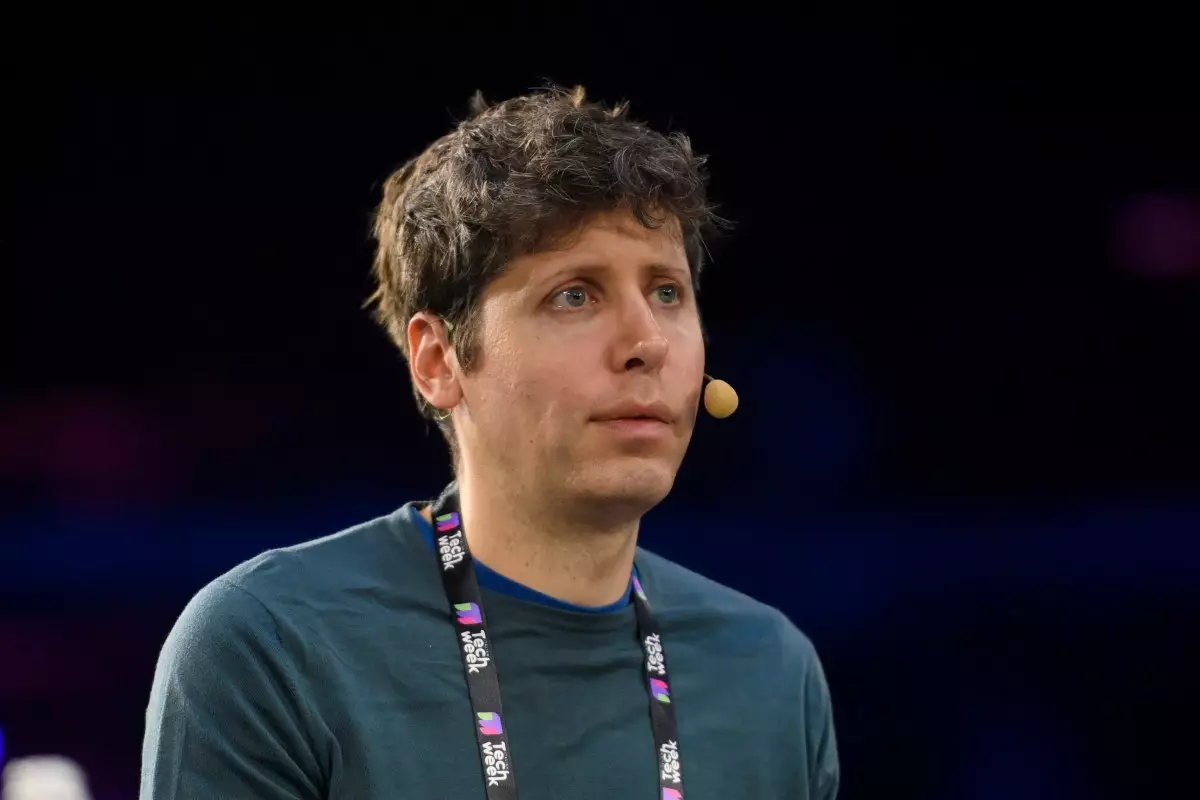In a significant rebranding move, the cryptocurrency startup previously known as Worldcoin, co-created by tech visionary Sam Altman, has officially changed its name to World. This shift reflects a broader ambition beyond its original goal of providing a cryptocurrency tied to “proof of personhood,” a concept that has generated both intrigue and skepticism. By dropping “coin” from its title, World aims to signify its intent to evolve into a more expansive identity, moving away from the confines typically associated with cryptocurrency. The aptly timed announcement coincides with the unveiling of their next-generation iris-scanning device, the Orb, at a high-profile event in San Francisco.
Alex Blania, the co-founder and CEO of World, highlighted during a recent press conference that the original name had become less relevant in light of the company’s aspirations. It appears that World is intent on broadening its focus to tackle challenges beyond mere cryptocurrency development, positioning itself as an essential player in the evolving landscape of artificial intelligence (AI) and identity verification. This pivot raises intriguing questions about the future role of the company as it seeks to interlace its technology with the imminent advancements in AI, which have been rapidly changing the dimensions of human-interaction paradigms.
The redesign of World is illustrative of a growing trend among tech startups that aspire to integrate human verification with advanced blockchain technologies. The vision is to create a system that ensures users can authenticate their identities in a digital world increasingly populated by AI entities—a concept that is essential in a time when distinguishing between human and AI-created content is becoming increasingly ambiguous.
World is not merely a venture focused on cryptocurrency; it is a platform that aims to provide what it calls “human verification services.” This service is touted as a solution to the dilemmas posed by increasingly sophisticated AI technologies, which blur the lines of human interaction online. Blania’s remarks on the separation of World’s mission from that of OpenAI underscore the distinct yet interconnected roles both companies might play in this transformative era. While Altman’s OpenAI is centered primarily around developing advanced AI tools, World seeks to fortify the human aspect of interaction in the digital universe.
The notion that World’s cryptocurrency could someday integrate with platforms such as ChatGPT adds an intriguing layer to this emerging narrative. However, any prospective alignment will be contingent upon maintaining a clear boundary between the identities and objectives of each venture. Thus, the challenge lies in demonstrating that World, despite its affiliation with notable figures in the tech industry like Altman, operates independently while contributing significantly to the tech ecosystem.
Despite its ambitious goals, World faces notable scrutiny regarding its methodologies and the ethical implications of its technologies. Concerns around privacy and security have led multiple governments, including those in Kenya and the EU, to investigate the startup’s practices, reflecting broader skepticism towards tech companies that engage in extensive data collection. The ongoing probes signal a cautious approach to innovations in identity verification and digital rights, underlining the need for transparency and trust in the model World is proposing.
Critics have raised valid points regarding the practicality of asking users to trust a cryptocurrency enterprise with their sensitive identity information. This skepticism is exacerbated by the controversial reputation of some of its founders. As Blania noted, the company must navigate an uphill battle in building that trust, particularly when adopting measures like requiring users to show government-issued ID for verification during events.
World is ambitiously set on expanding its base from its current 7 million verified individuals to a much larger community, which necessitates scaling up its operations and refining the user experience for its iris-scanning verification process. The newly launched Orb promises to simplify this process through enhanced functionality, and partnerships with services like Rappi exemplify the practical applications the technology is intended to serve.
Furthermore, initiatives such as the launch of the beta version of World ID—a potential alternative to government-issued identification—serve as a vital step towards establishing a decentralized verification system that respects user privacy while enabling secure online transactions. However, successfully achieving adoption hinges not only on technology but also on fostering a trustworthy relationship with users.
As World continues to navigate these complex landscapes, its trajectory will be closely watched, not just by the cryptocurrency community but by a broader audience eager to see how identity verification evolves in a rapidly digitizing world. The success of World may very well hinge on its ability to demonstrate that the convergence of AI and human identity verification can be both ethical and beneficial.

